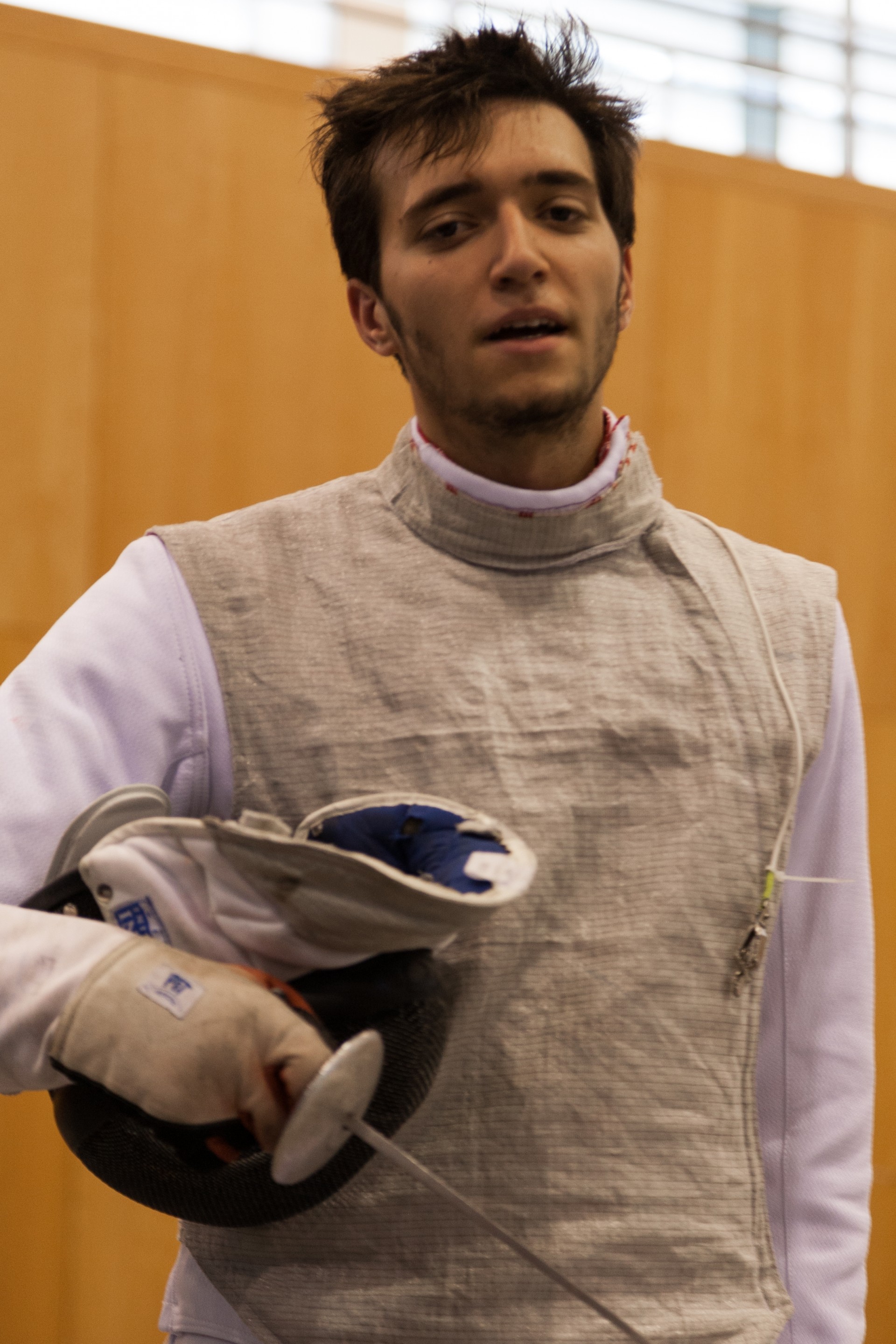
We met in the neurosciences’ library, because it was there that we recorded part of the video where he appeared as one of the protagonists of the Faculty's institutional video.
He is called José Charréu, but we quickly realize that he finds it strange if we call him José.
Being shy and reserved, he says he needs to gain confidence in the beginning before he can be expansive. Irreprehensible when doing anything at all, he will only accept that something is finished if he is absolutely certain that it went well, otherwise he tries again without demoralizing, but lack of perfection does not fit his routine.
We met in the summer, at the time of shooting. I asked him not to come dressed in white because with the light it will create a too bright spot in the image. But Zé shows up wearing white, and it never occurred to me to tell him that colour was not the right one. He himself remembers the conversation and asks for a few minutes because he will change his clothes while the technical equipment is being set up. The white short sleeved Tshirt is replaced by a burgundy one.
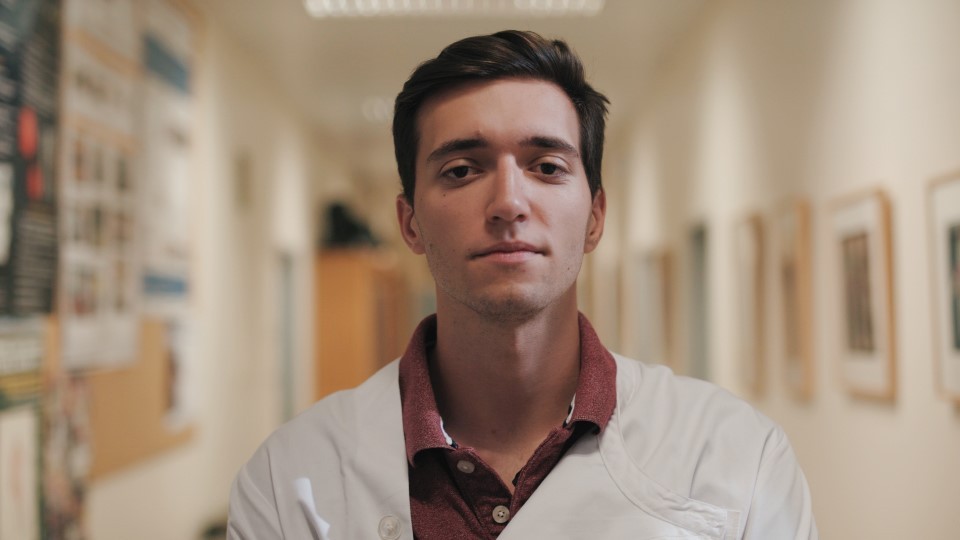
It is easy to empathize with him. Without revealing much about himself spontaneously, he was very careful with words not to appear presumptuous. Still, he knows, without false puritanism, to evaluate his skills and that makes him genuine. Sometimes he yields to the temptation to convince us that he has little aptitude for almost anything, and if we did not know about a few of his characteristics, we would be tempted to believe him, such was his conviction.
When he was just three years old, he joined Sagrado Coração de Maria School and only left at 18. His mother is a French teacher at the same school and responsible for him changing his look on the day of our video recording; she left the house so that her son could get it right.
His father works in the financial area, but no less attentive, on the evening of the recordings he dragged the work until later, so that he could give Zé a ride. Spoiled boy, would one say? No, simply proud parents who correspond to his commitment to everything he does, and to his younger brother’s aged 17. There is in all of them an unwavering family commitment to any new element that comes from outside.
After school, he went straight to the Faculty of Medicine where he is already in year 4.
If in high school he still considered studying Engineering, he says that his doubts dissipated when he paid attention to "the wizard." Not the conventional wizard, as he does not read palms, nor the stars, but the technical behaviour of the students who seek him.
The psycho-technical tests he undertook dictated the right course to take and he tells this story, like so many others, in a mix of grace and reservation that we always try to decode. After a full day of testing and interviewing, he was profiled. His first choice was medicine, which he took. Today he is sure that he made the right choice. Although laughing and saying that maybe it's not the most magical answer, that one chooses a degree without inspiration.
He does not like it when people say that he plays the violin well. But the truth is that since the age of 5 and until entering the faculty, he has always had classes. He stresses that he played for leisure and not professionally. And although he joined the Lisbon Medical Orchestra, he left because it meant impairing fencing training.
Fencing is his second major focus, and surely the first when he does not have to study so much for medical school.
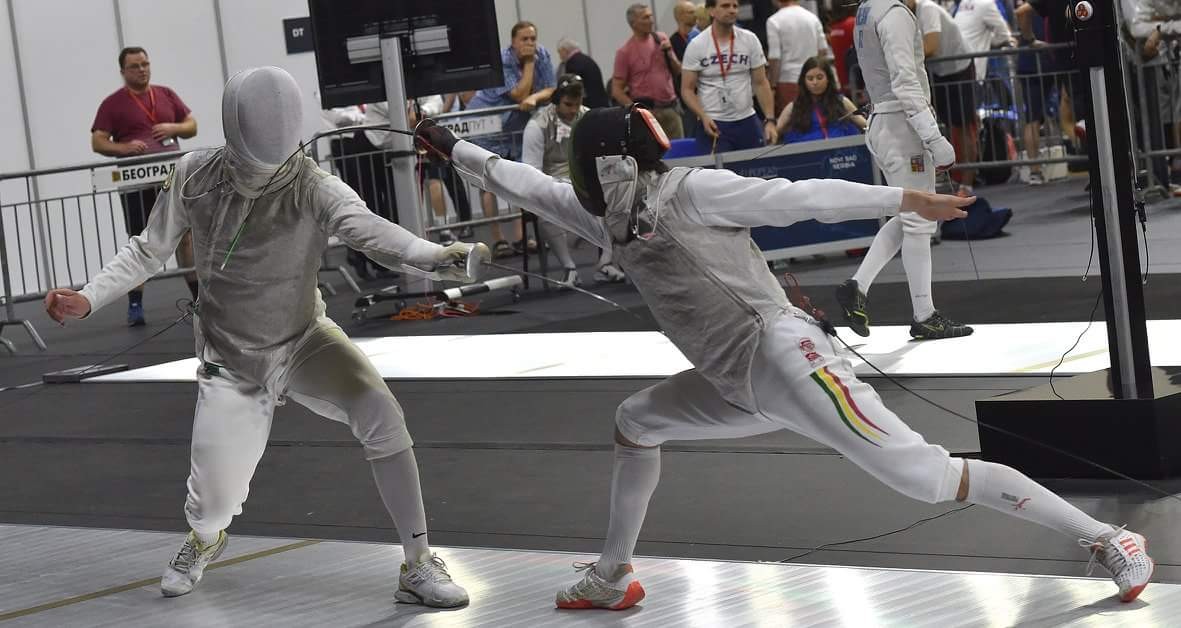
He started fencing due to the influence of his father, who was a practitioner of the sport, precisely because he studied at the Army Pupils, a military school with a great sporting tradition. Zé started at the age of 7 and liked fencing immediately. As soon as he started the first year, he participated in competitions and says he "even had some potential." He is currently a national fencing champion and has been in the senior category for 2 years (category depending on age). He has 5 more junior championships, and another 3 years in the cadet category. Internationally, he did not go unnoticed either. As a cadet he came in 5th in Europe and as a junior in 16th. He has a high performance contract and in order to keep it he knows he always has to be ranked in the first half of the European or world championship. As this is a year of qualification for the next Olympic Games, he expects to keep the contract, since "he will do everything for fencing", which does not mean that he will be selected, he warns me, in case someone thinks that he is too effective.
He knows he is competitive, stating it between his teeth, as if the Portuguese language would betray his intentions, as if competition was something that betrays character; he knows that the competition is within him, so that he always surpasses himself above the level where he already was.
Tell me about fencing because I realize you keep training a lot.
José Charréu: Considering the level I am in now (still at international level), I should train a lot more, but I can only do it once a day.
I thought you were going to say that you only trained once a week...
José Charréu: And I don't train on weekends either! But then, if I don't have a medical congress, or a sports competition, I try to go to a gym.
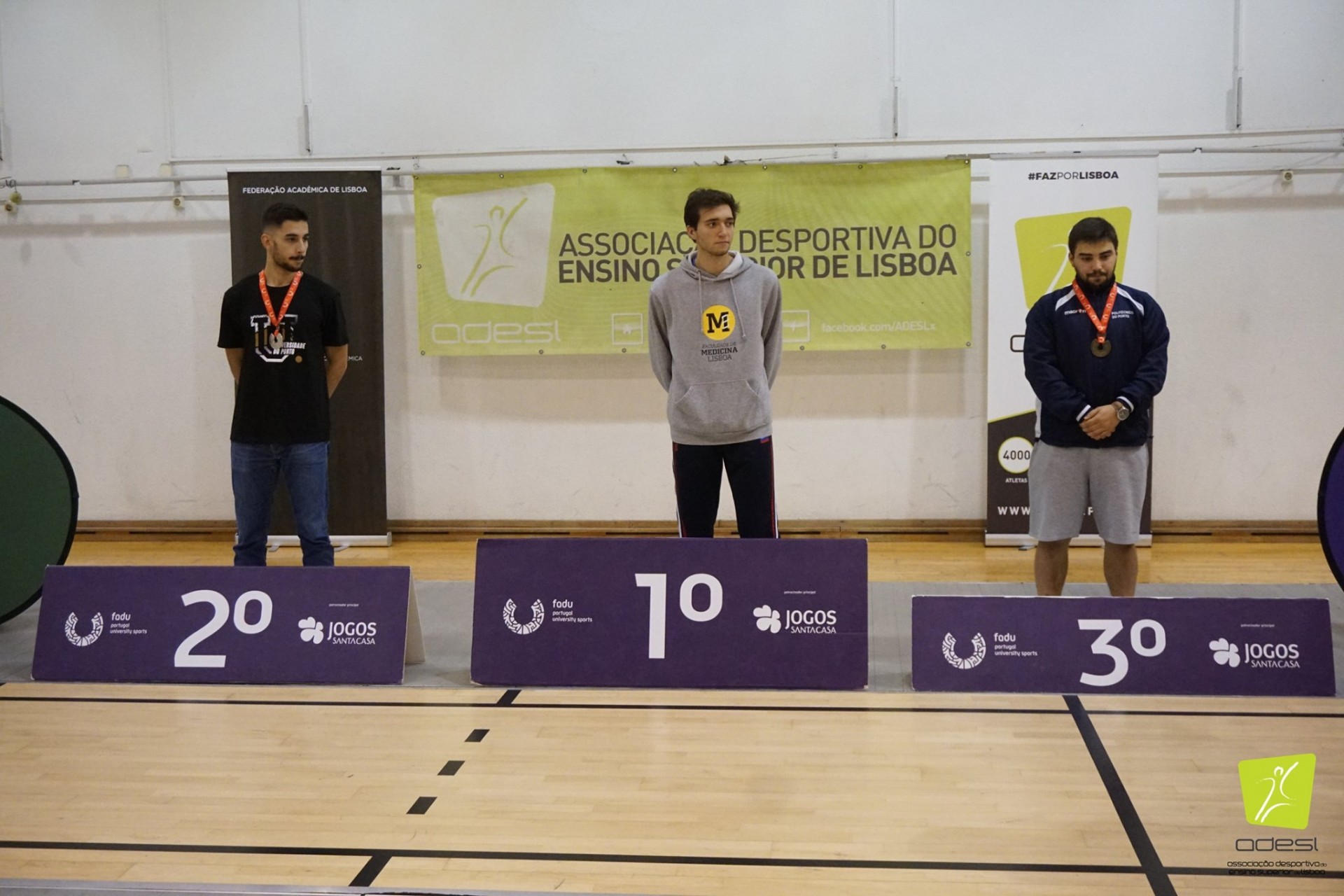
What is a daily fencing workout like?
José Charréu: It's from 19h to 21h. Every day. I only stopped a little with this schedule in year 3 of the degree, when I had a lecturer (Rute Baptista) that I liked so much that I didn't want to miss a single class of hers. After the cadet category, I became junior and then dropped some quality, because I also started doing less competitions abroad. The Federation began to have less money. And if at the age of 13/14 my parents really invested a lot to enable me to stand out abroad, then they had to slow down because it was also necessary to pay for my brother's competitions.
So the parents fund these sports trips out there? I thought it was the Federation.
José Charréu: In those days the Federation did not invest, they did so on the older ones. But now that I am older, they are in fact investing in the younger generations. (Laughs) My parents’ goal was to give the initial push and hope that later the Federation would work on me more.
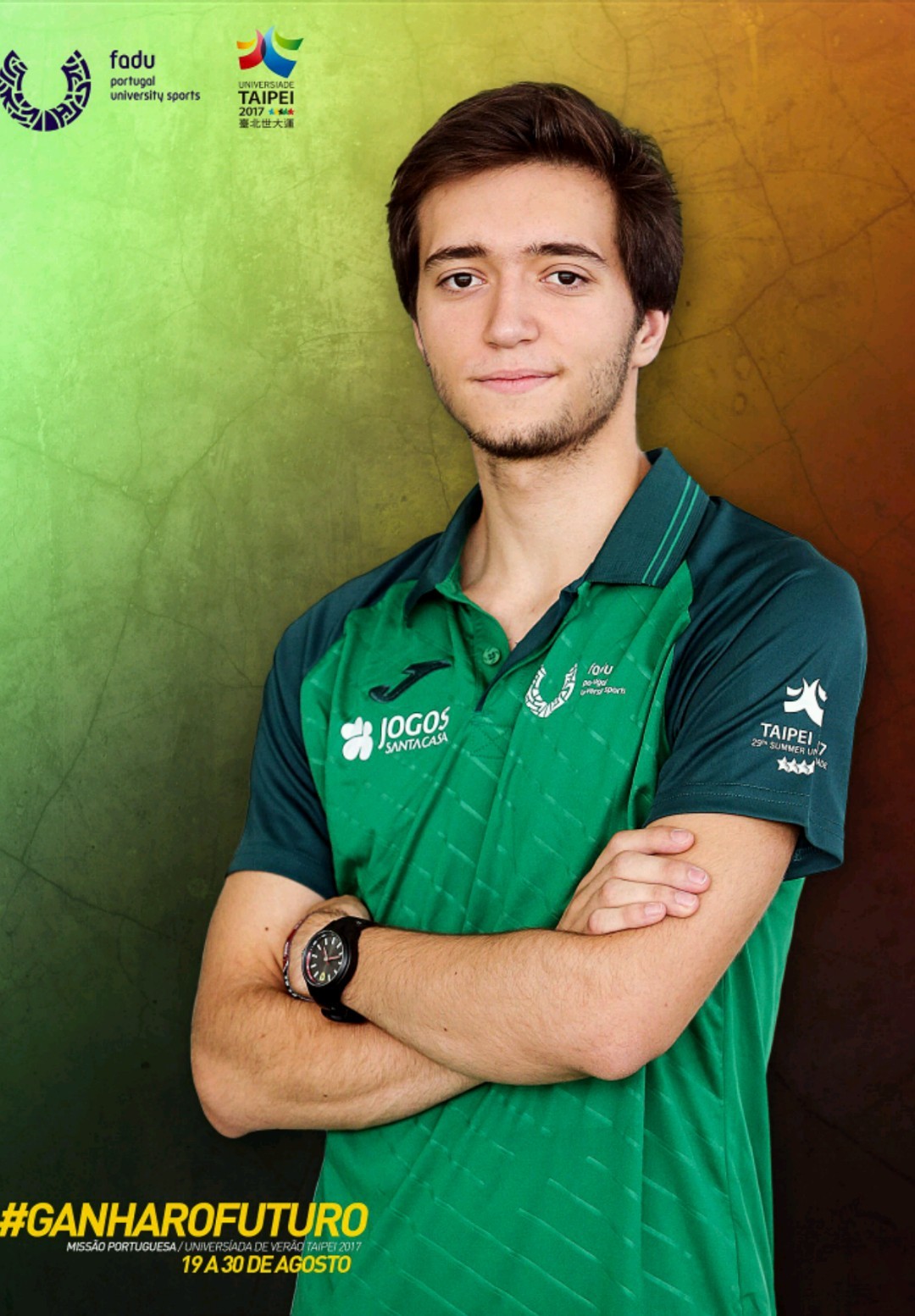
Do you feel pressure from your father to continue his wishes?
José Charréu: I felt pressure, but not in the sense of continuing, because my father never had this weight of the competition. I felt weight placed by myself and not by my parents, they never put me in this situation. The pressure I felt was that they invested so much in me that I felt this commitment and responsibility to give back. Now that I only go to competitions when proposed by the Federation, I don't feel it that much. Of course I have demanding but not punishing parents, they want me to prepare well, then we will see what the end result is.
And they have been able to pass that message down to you, because you finish the 3rd year with a Merit Diploma. But while we were shooting the movie, you told me that your early years were not that good.
José Charréu: When I came here, I thought that placing so much importance on fencing would mean I was not going to have a great academic success. Perhaps this initial thought defeated me a little.
Do you constantly underestimate yourself?
José Charréu: Maybe I do, and I did not study less than I do today, but as I created a mental barrier, maybe that affected me in the early years. Still, I must say that in the first year I did not find the subjects so interesting. I work a lot through stimulus, if I like a certain subject I can be studying it all day, because I have good resistance to tiredness. The opposite also happens. I have a hard time studying subjects that I don't like.
Do you play the violin occasionally to catch up on old times?
José Charréu: My brother still has violin lessons and plays at home. Sometimes he leaves the violin on the table and I pick it up and play what I still remember.
Is playing the violin like riding a bike? That is, once you know how to do it, you never forget?
José Charréu: The violin is not like the piano because it has other tuning details. If you have finger memory on the piano, just tap the right key and it always plays the same. In the violin is not like that, it has a bar and if you place your fingers the wrong way, all gets out of tune. But the ability, I think the person never loses. I like music a lot and as my brother also plays the piano, sometimes we get together and compose some things, then we record a tone in the background and we play something else to make some mixes. It's fun!
How does a person as reserved as you agree to expose yourself in a video, without any fear of ridicule, or even if fearing it, keep going forward?
José Charréu: I was at the World Cup when Zé, President of the AEFML called me. At the time I thought it would be an invitation to do something related to the Students’ Association, but he told me it was for a promotional video. At first I thought, "No, I won't accept it, I'm not good at it," but then I thought it was a challenge and that I should try. Besides, I thought it was an honour to be able to represent the Faculty in this way. And in the past I had had this opportunity to represent it in Taipei at the University Games, so I thought I was just going to continue this representation. We students criticize some aspects of the Faculty and I thought it was important to pass on the opposite feeling. Because not all is bad and we don't have to change everything.
Did you like to see yourself?
José Charréu: (Laughs) I didn't like my voice at all, my voice is not like that. (Laughs) But now that I see it, I remember everything with great joy and it will be a memory that I will keep forever.
You are very reluctant to say that you are competitive. Why? Are you afraid of being misunderstood?
José Charréu: I am always very careful about what I say and I think a lot before I do it, because we have to be careful about what we say. (Smiles) My mother even tells me that sometimes it's too much. But yes... I am competitive, so that I always want to improve, but I cannot deny that our performance is always related to that of others. But my competition is good. I give another example, sometimes I spend a lot of time choosing the right word to fit in a paragraph and I just sit around wondering if that really is it...
Is this perfectionism or lack of confidence?
José Charréu: I suffer from both. (He laughs openly) From the moment we know a quality threshold, we don't quite accept getting off it. It bothers me a lot.
But in sport one also loses... Does it bother you too?
José Charréu: And I suffer many disappointments as a result... Imagine, if there was a time when we were very good, and then, instead of progressing, we don't see the results mirrored in what we have done, that is disappointing. When we get defeated in fencing, it is sometimes very unfair because the assaults consist of 15 touches and a person can lose 15/14 and losing with that result is the same as losing by 15/0. Then there is a feeling of huge frustration. But then, when things go well, we are very compensated, winning is a very good feeling. I have never felt it anywhere else, not even with a grade in the degree.
Why? Is it that in sport the victory is more publicly recognized?
José Charréu: It’s not that, it is the feeling of having adrenaline peaks and then feeling relief, knowing that it is going down. This feeling is very good.
You told me earlier that your feet are “firmly placed on the ground". Since fencing is so important for you, what is your top priority?
José Charréu: Despite this being the year of Olympic preparation, maybe, at times, I will sacrifice the Faculty a little more, but it will never be compromised. The difficult thing about reconciling the degree and fencing is the practice at the end of the day, it is when I have to be abroad participating in competitions and then I can't prepare the lessons for the following week. Then I get behind. One thing that fencing has taught me is that many times when I return, I have to learn by myself, because the others have not stood still waiting for me to be back. You have to be self-taught, and at the Faculty we learn a lot that way. As I already had this experience, it was not so difficult to adapt to this pace of autonomy.
Do you have an exact idea of what you want to do?
José Charréu: In recent times I feel more affinity for medical specialties and less for surgical ones. The medical areas are vast and these priorities are not yet established. What challenges me is the diagnosis, clinical reasoning, it is the mental construction that interests me, rather than the action and execution of the technique.
But I'm not closing doors, maybe I still change my mind.
In the midst of all this where is the time just for you?
José Charréu: I do not have much. I have no aversion to spending a day watching series or playing video games, but simply I can't afford it.
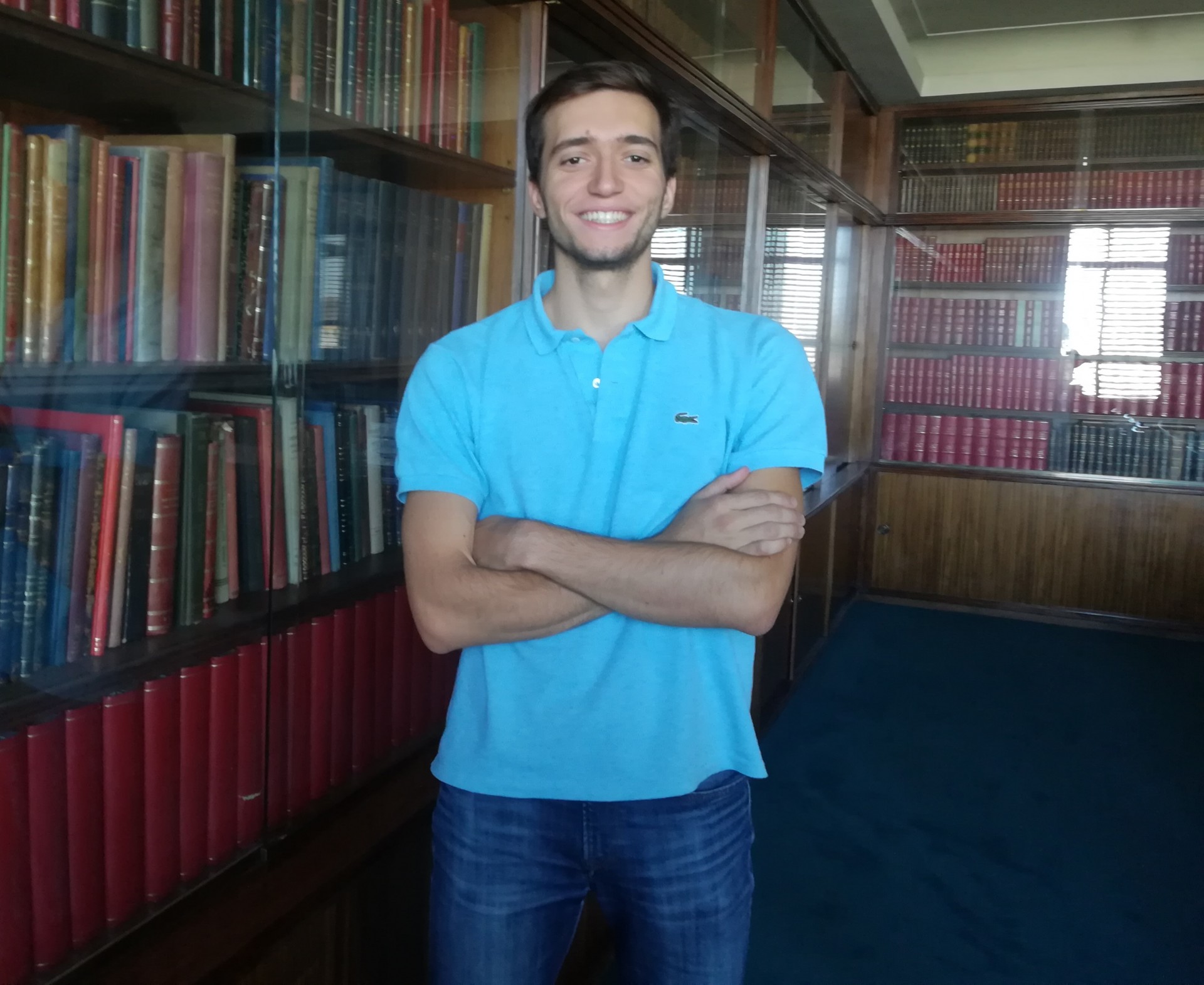
Next year, Zé will try to undertake an Erasmus+ mobility in France, perhaps because of his affinity with the language, from his mother’s side or also for his connection to his grandparents, who are not French but have lived in France for many years. He is keen to say that he is very close to his family and that makes him doubt whether it will be a semester only, or a whole year. He smiles and says he will have to learn a few things before leaving home, "cooking, doing the laundry" and he does not elaborate because that “would be to highlight too many weaknesses".
This will be followed by year 6, which will force him to refocus on the study for the preparation of specialty exams. Dropping fencing temporarily? "No, not that, maybe reduce the training load," he tells me as if we are coming to an end without me understanding the true importance of the sport for him. It's not just the competition, he likes to train and be with his team, and the adrenaline rush that keeps feeding him every day. This explains why he is still playing for a fencing team in Madrid and refereeing events, an activity in which he also graduated, to complete what he already mastered regarding the rules of the game.
Near the end of our conversation, and after a few hours talking, I think I can take a chance and try to photograph him while he talks. But it is not possible, he stops talking and sits upright in his chair, uncomfortable. Exposing him will always have to be an action that has been well thought out by himself, and shyness immediately reminds him that one should never be totally sure of anything.
These are his life rules. These are the rules of the game. And, as he has almost always been a winner, it is very likely that he is right.
Joana Sousa
Editorial Team


